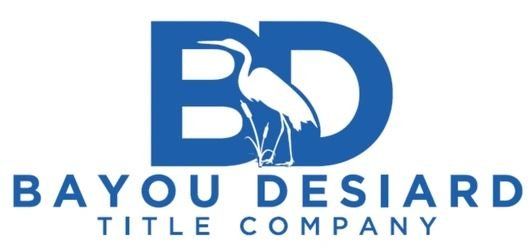FREQUENTLY ASKED QUESTIONS & ANSWERS
If you're wondering if you should purchase title insurance watch this great video by Dave Ramsey
What is Title Insurance?
When a property is financed, bought or sold, a record of that transaction is generally filed in public archives. Likewise, records of other events that may affect the ownership of a property, like liens or levies, are also archived. Title insurance helps eliminate past risk, rather than assessing the probability of future risk
When you buy title insurance for your property, a title company searches these records to find - and remedy, if possible - several types of ownership issues. First, the title company searches public records to determine the property's ownership status. After this search, the underwriter will determine the insurability of the title.
Even the most skilled title professionals may not find all problems associated with a property, though. Some risks, such as title issues due to filing errors, forgeries, or undisclosed heirs, are difficult to identify. So after the title company finishes its searching, it also provides a title insurance policy that will help protect you from a variety of issues that might be uncovered later.
If you take out a mortgage loan when you buy your property, your lender will require a loan policy of title insurance. This protects the lender's interest in your property until your loan is paid off or refinanced.
On the other hand, an owner's policy of title insurance insures your ownership rights to the property. Even though you'll pay for this policy only once, your coverage will last as long as you own your home.
A real estate purchase may be the largest financial investment you ever make. So, when you buy an owner's policy of title insurance, just think of it as buying some peace of mind!
Why do I need Title Insurance?
Title insurance is crucial for a home buyer because it protects you and the lender from the possibility that your seller doesn't -- or previous sellers didn't -- have free and clear ownership of the house and property and, therefore, can't rightfully transfer full ownership to you.
Common Title Problems
Title problems can surface after you close on your home and affect your homeownership rights. Some of the more common title problems include:
- Errors in public records, like a filing mistake or inaccuracy on a former deed
- Unknown liens resulting from unpaid debts of former owners
- Missing heirs who come forward years after the owner passes away and you’ve purchased the home
- Forgeries, like forged or falsified documents
- Survey or boundary issues that may affect your ownership and cause disputes
Title professionals are skilled at identifying—and curing, if possible—these types of problems and countless others before you take ownership. Your title policy then serves to help protect you from those issues that may still remain undiscovered.
What is the difference between a Loan Policy and a Owner's Policy?
Loan Policy
Your lender requires title insurance when you secure a mortgage. A loan or lender’s policy protects the bank or lending institution for as long as they maintain an interest in your property—typically until your mortgage is paid off. If you refinance your loan, you’ll need to purchase a new policy to cover the new loan.
Owner’s Policy
An owner’s policy of title insurance helps protect your rights as the homeowner for as long as you or your heirs own the property. In some areas, it’s standard for the seller to purchase the owner’s policy for the buyer, whereas in other areas the owner’s policy is a recommended buyer purchase.
